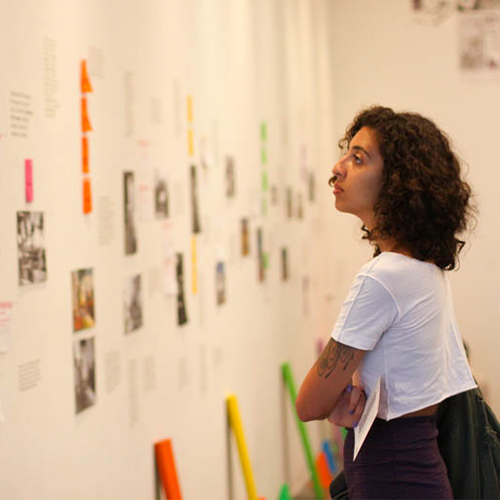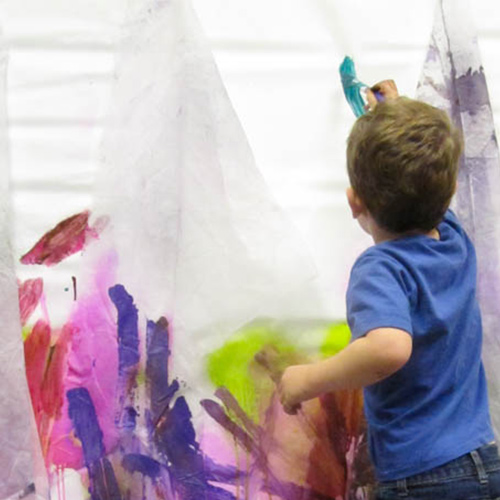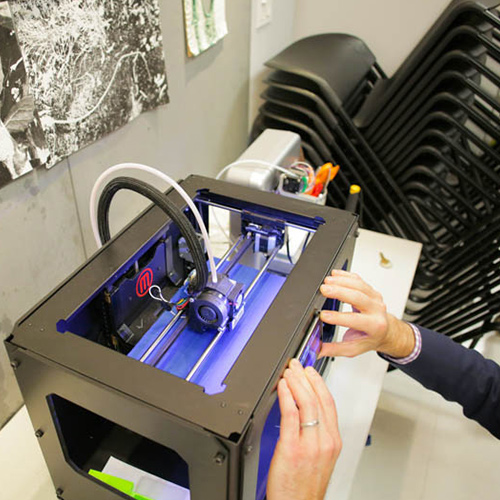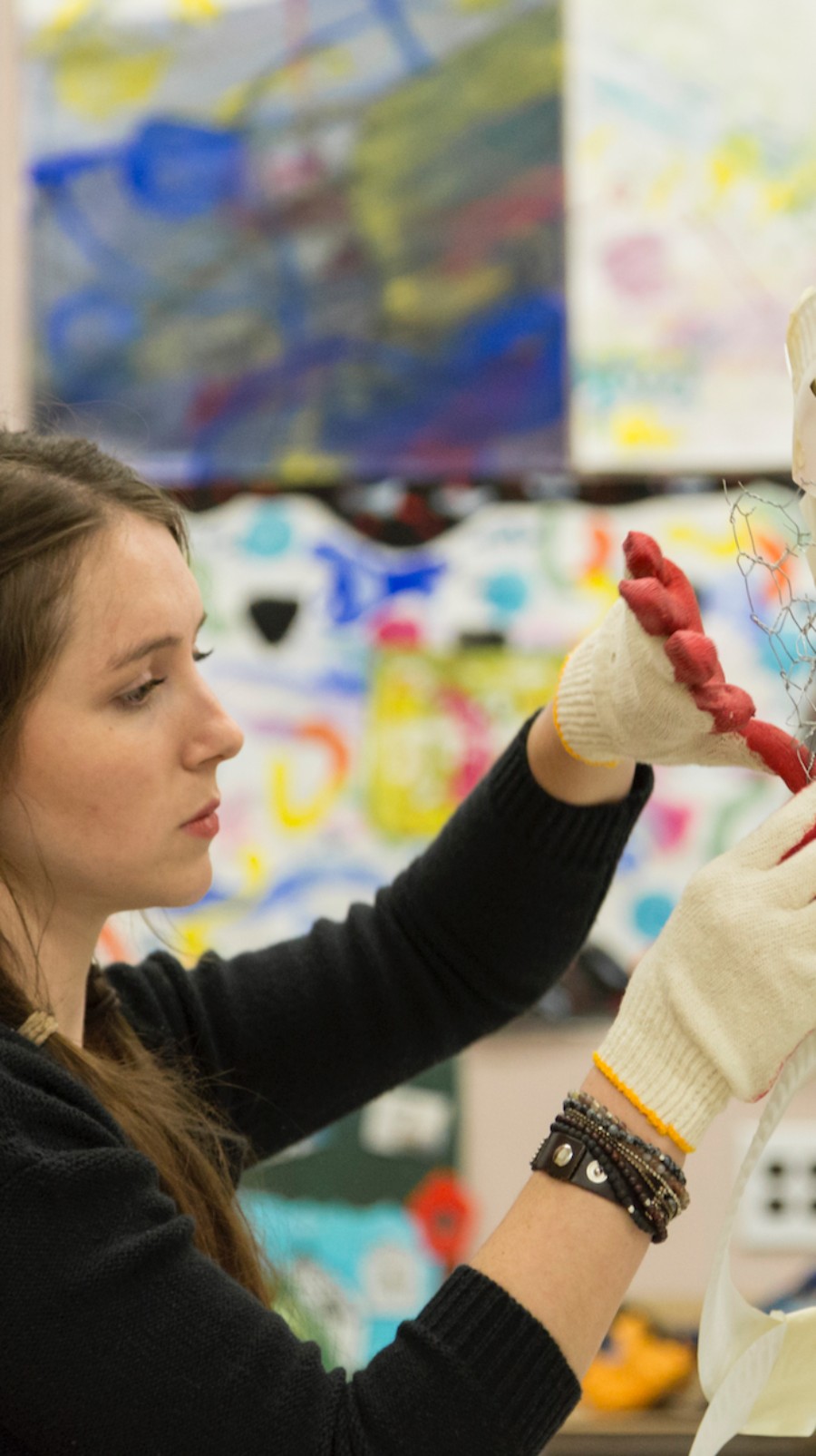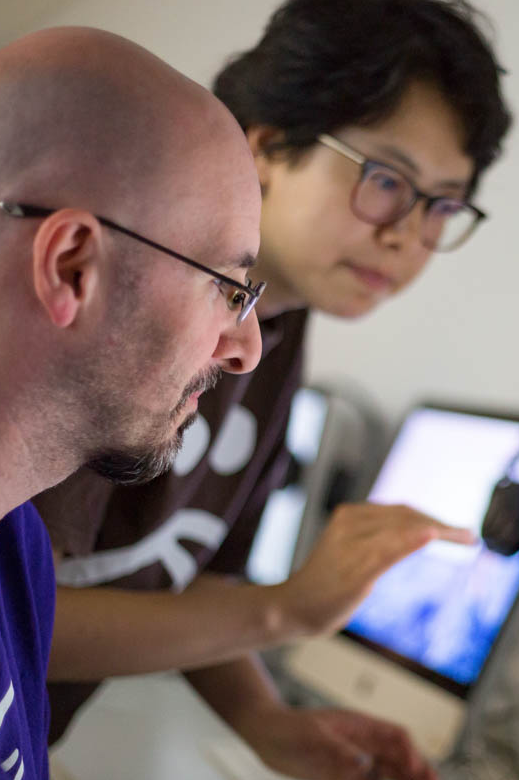Doctor of Education
The Ed.D. prepares scholars and practitioners in art and art education who conduct research, provide leadership, and teach in a variety of art education contexts. Our graduates become administrators and professors in art education departments in colleges/universities, and provide leadership in museums, school districts, non-profit and community organizations, and governmental agencies, among other settings. Does not lead to Initial Art Teacher’s Certification (PK-12).
Please visit our FAQ to learn more about the difference between degrees and other pertinent program information.

Admission Information
Displaying requirements for the Spring 2026, Summer 2026, and Fall 2026 terms.
Doctor of Education
- Points/Credits: 75
- Entry Terms: Spring, Summer, Fall
- Enrollment Formats: Full-Time Campus-Based, Part-Time Campus-Based
Application Deadlines
| Entry Term Available | Priority Deadlines | Final Deadlines | Extended Deadlines |
|---|---|---|---|
| Spring | November 15, 2025 | November 15, 2025 | N/A |
| Summer | December 1, 2025 | June 1, 2026 | N/A |
| Fall | December 1, 2025 | July 1, 2026 | N/A |
Select programs remain open beyond our standard application deadlines, such as those with an extended deadline or those that are rolling (open until June or July). If your program is rolling or has an extended deadline indicated above, applications are reviewed as they are received and on a space-available basis. We recommend you complete your application as soon as possible as these programs can close earlier if full capacity has been met.
Application Requirements
| Requirement | |
|---|---|
| Online Degree Application, including Statement of Purpose and Resume | |
| Transcripts and/or Course-by-Course Evaluations for all Undergraduate/Graduate Coursework Completed | |
| Results from an accepted English Proficiency Exam (if applicable) | |
| $75 Application Fee | |
| Two (2) Letters of Recommendation | |
| Master's degree required | |
| Academic Writing Sample | |
| Supplemental application required (included in online application) | |
| Digital portfolio required (included in online application) | |
| At least five (5) years of teaching or equivalent professional experience |
For admission-related inquiries, please contact AHadmission@tc.columbia.edu.
Additional Information
- Students pursuing this degree are also eligible to apply for an Advanced Certificate in Creative Technologies.
Requirements from the TC Catalog (AY 2025-2026)
Displaying catalog information for the Fall 2025, Spring 2026 and Summer 2026 terms.
Required Dissertation Seminar Sequence in Art Education (15 points):
-
A&HA 5504: Proseminar in Art Education, Part 1
-
A&HA 5504: Proseminar in Art Education, Part 2
-
A&HA 6510: Advanced Seminar in Art Education, Part 1
-
A&HA 6510: Advanced Seminar in Art Education, Part 2
-
A&HA 7502: Dissertation Seminar
Required Research Methods Courses (4 points minimum)
Two courses minimum:
-
A course that offers an overview of various research methods.
-
A course that focuses on a specific methodological approach.
Required Content Courses in Art Education (12 minimum suggested points)
To be selected in consultation with the advisor.
Required Studio Courses in Art Education (6 points minimum)
Optional Concentration Courses
Students enrolled in a concentration must fulfill all courses required for that specific concentration.
Required Courses Outside the Program (flexible points)
To be selected in consultation with the advisor.
Presentation Requirement: A&HA 6999 - Exhibition Rating (0 points):
-
Exhibition OR
-
Publication OR
-
Conference Presentation
Notes:
To complete doctoral certification, students must fulfill all course and doctoral/dissertation seminar requirements and successfully pass faculty review of doctoral qualifying papers and the dissertation proposal. Students are also required to offer a professional presentation. This may include--in consultation with the student’s advisor--a conference presentation, a published article, a gallery exhibition, or other equivalent advisor-approved professional presentation. The doctoral certification process is accomplished through faculty review; students must complete each level satisfactorily before they are given permission to write the dissertation. Candidates should be in touch with the Office of Doctoral Studies to be certain of complying with the latest procedures and deadlines.
